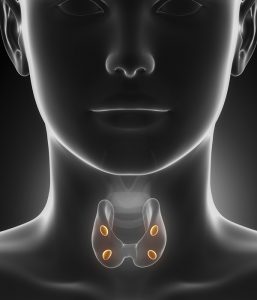
 Thyroid Symptoms in girls
Thyroid Symptoms in girls
The thyroid hormones play an important role in our body and are essential for normal growth. It also regulates the development of sexual and reproductive organs. During puberty, there is an increase in the levels of thyroid hormones. The body goes through multiple changes while transiting from childhood to adulthood. Let’s learn about the thyroid symptoms in girls and take preventive actions in advance.
Hypothyroidism can induce a delay in puberty or partial isosexual precocity if identified late in the prepubertal stage. It is a condition leading to the early development of breast and internal genitalia in girls and increased testis size in boys. Some of the thyroid symptoms in girls in young adulthood include menstrual dysfunction, infertility, and complications during childbirth.
The effect of hyperthyroidism on pubertal development is not well known. A short period of hyperthyroidism may not have significant negative effects.
Causes of Thyroidism During Puberty
One of the major causes of thyroidism throughout puberty is genetics. Children whose parents, grandparents, or siblings have thyroidism are at greater risk of developing thyroid disorders. Other common causes for thyroid during puberty are inadequate iodine intake, congenital hypothyroidism or nonfunctional thyroid, abnormalities in the pituitary gland, or improper treatment of the mother’s thyroid problems during childbirth.

Symptoms of Thyroidism During Puberty
One of the first symptoms of thyroidism during puberty is a slightly enlarged thyroid gland. During puberty, the body requires increased levels of thyroid hormones causing the thyroid gland to enlarge. However, if the thyroid is underactive, this may cause the gland to enlarge even more.
Thyroid symptoms in girls are more common and frequent than seen in boys. An autoimmune disease called Hashimoto’s thyroiditis generally causes these symptoms. Thyroid symptoms in girls closely resemble the symptoms shown by adults and include slower growth, gain in weight, delayed puberty, slow breast development, heavy or irregular mensural bleeding, etc.
Other symptoms, seen in girls and boys that may go unnoticed include fatigue, changes in behavior, mood swings, constipation, weight gain, puffiness in the face, depression, and trouble concentrating.
If your child exhibits any of the symptoms linked with thyroid disease, it’s important to have it diagnosed and treated so that he or she can live a normal life.